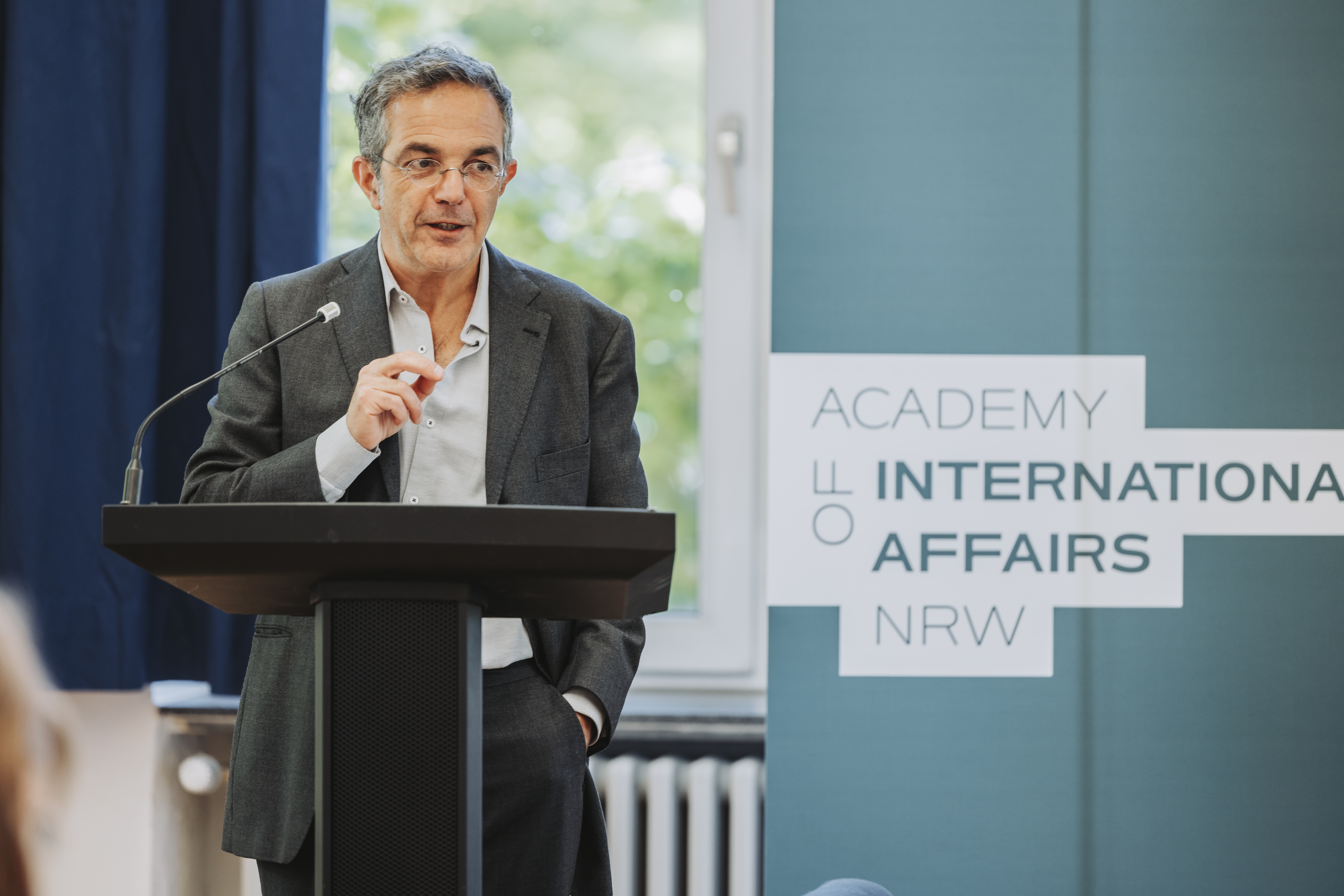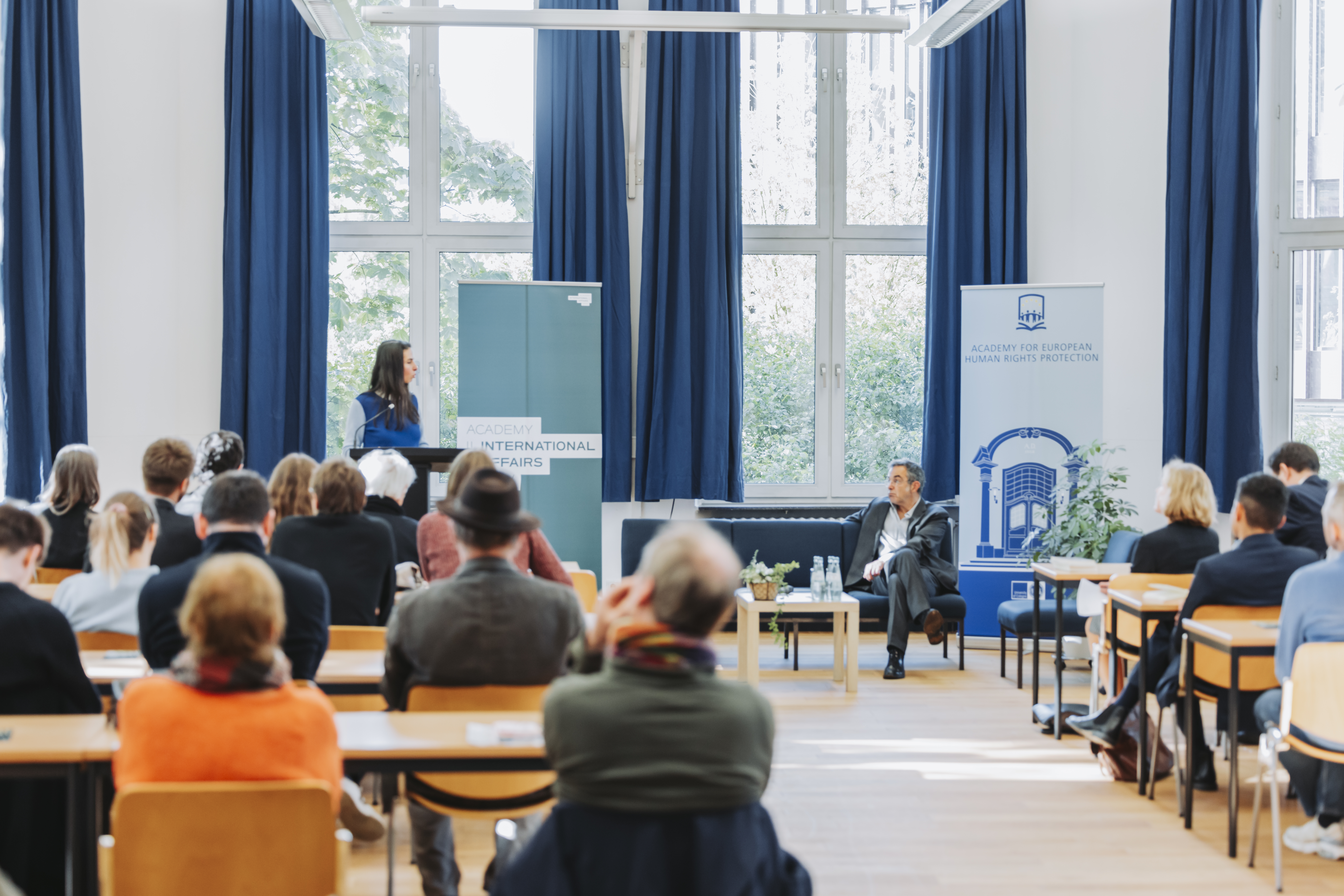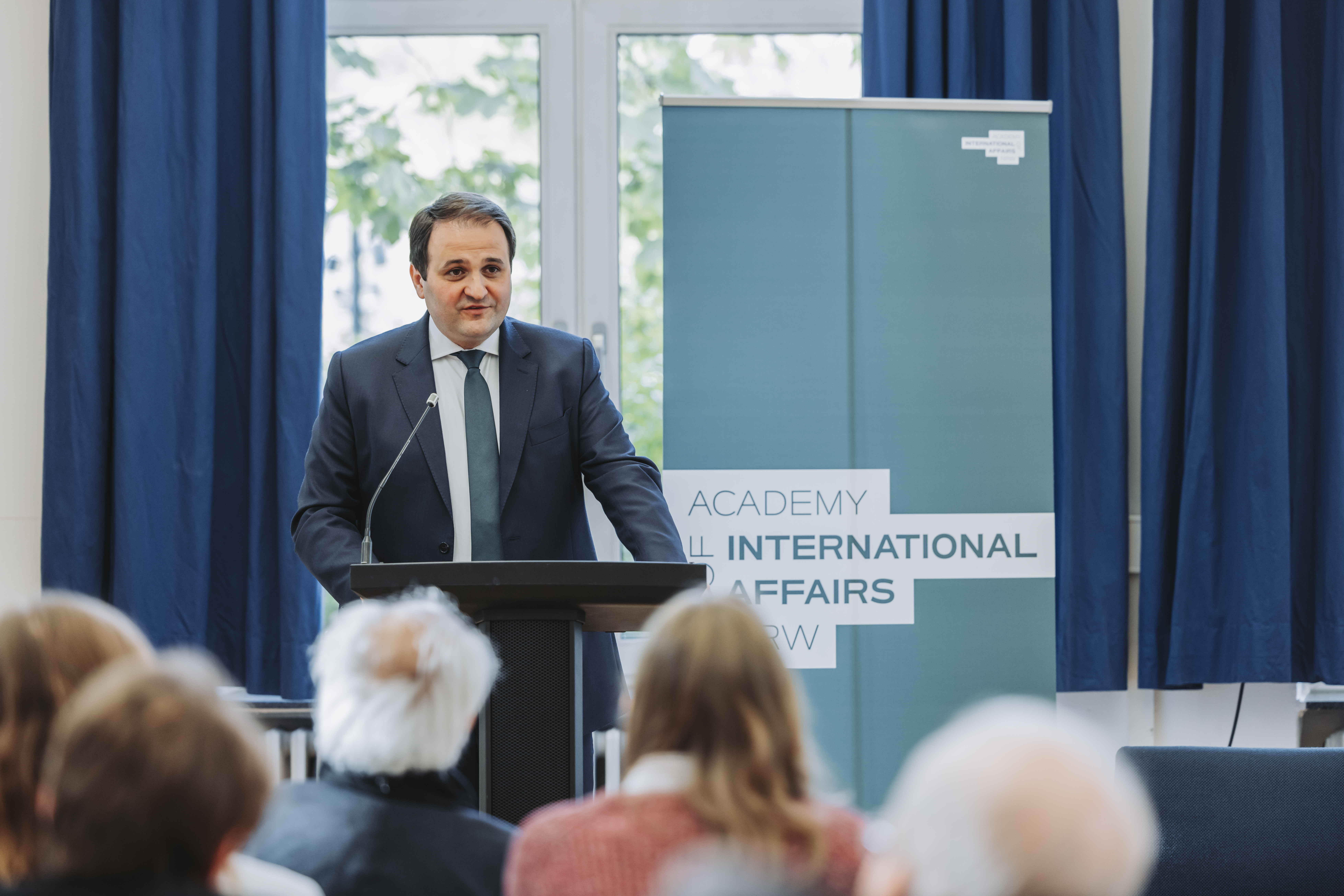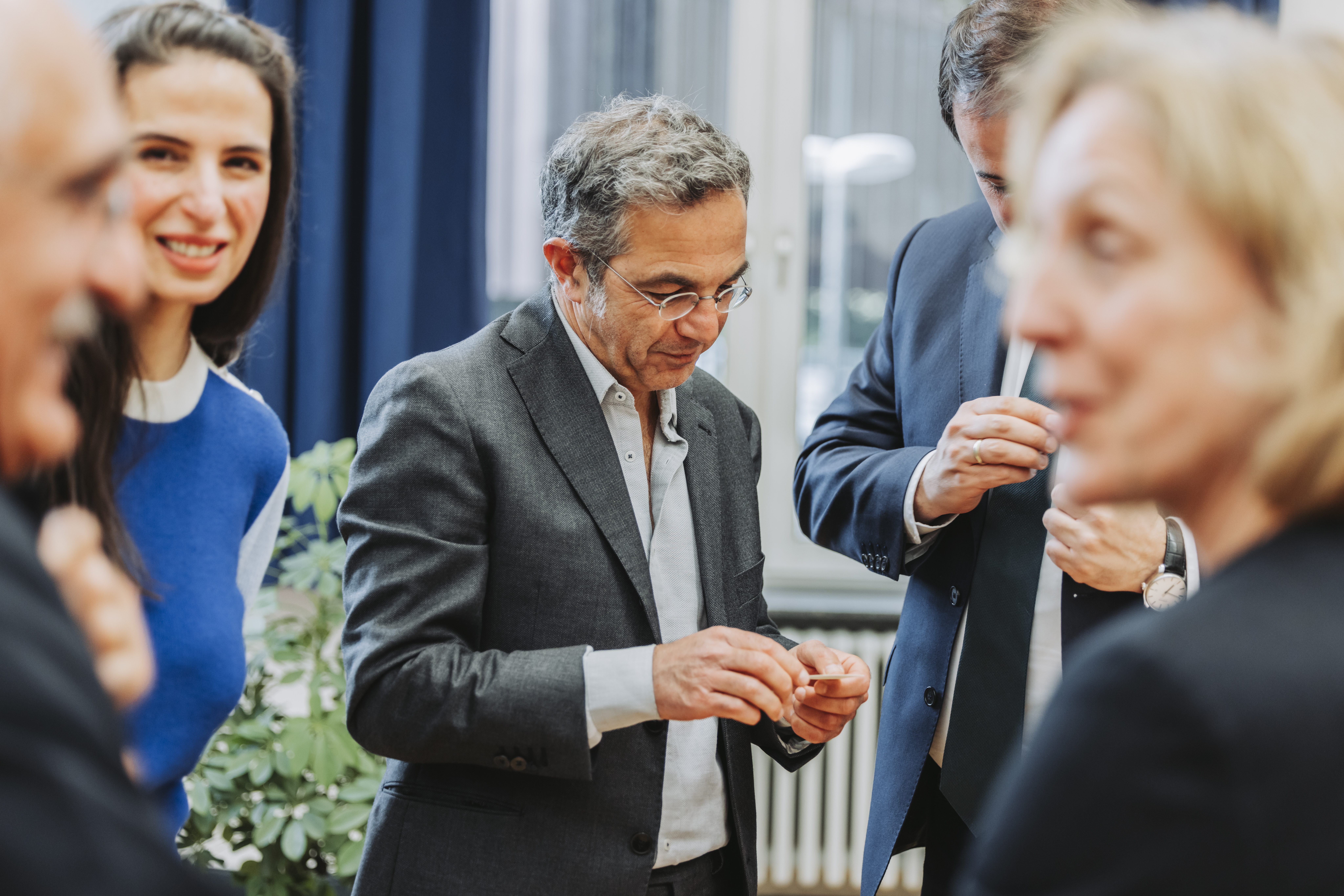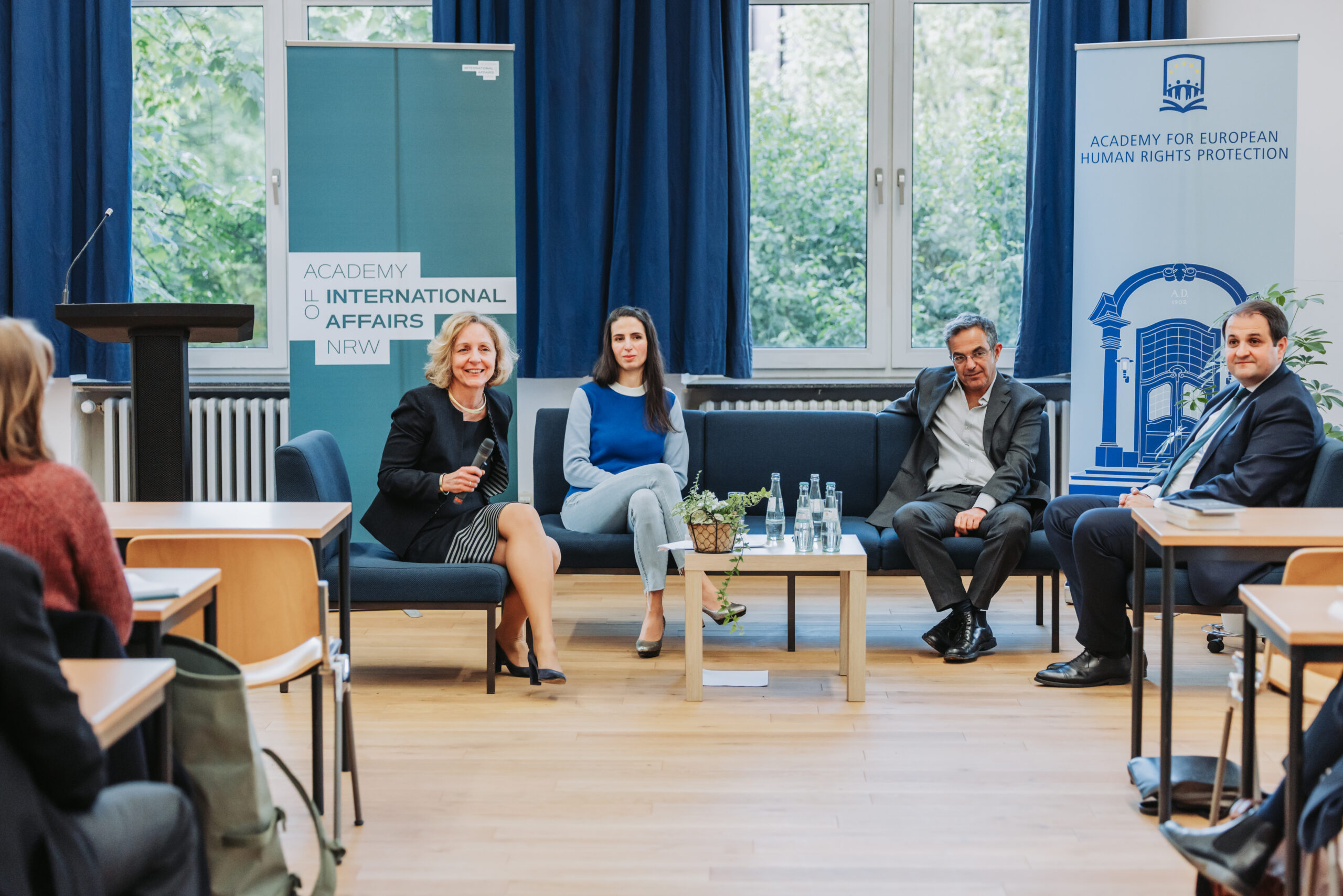The Middle East has been a culturally and geostrategically fascinating and complex region for decades. The importance of this region for global politics in the 21st century will in all likelihood continue to grow.
On Wednesday, April 24, Dr. Mayssoun Zein Al Din, Director of the Academy of International Affairs NRW, the German writer with Iranian roots Navid Kermani and the Minister for Federal and European Affairs, International Affairs and Media of the State of North Rhine-Westphalia and Head of the State Chancellery Nathanael Liminski spoke to an audience of around 70 interested listeners about the Middle East in a changing world order. Under the direction of Prof. Dr. Angelika Nußberger, Director of the Academy for European Human Rights Protection at the University of Cologne, the discussion focused on this region, which has been both culturally and geostrategically fascinating and complex for decades. On the one hand, the focus was on the role of Iran and its influence in the region. The role of the Arab world in the future world order of the 21st century was also discussed at length.
After a brief introduction by moderator Prof. Nußberger, Navid Kermani drew on his personal experience and made it clear that today’s conflicts in the Arab world are the result of protracted processes. Dr. Zein Al Din also emphasized the geostrategic importance of the Middle East. The West’s line of conflict with Russia runs right through the middle of the Arab region. The USA, Russia, China, Turkey and other states all want to assert their influence in this dynamic region and the Arab states, which have been self-organized for the first time in several decades after centuries of foreign rule, are appearing in the world with a new self-confidence. Minister Liminski expressed his delight that perspectives were being opened up that otherwise rarely received attention in German discourse and added that closer cooperation was also important because stability and prosperity were closely linked to security and humanitarian issues. The discussion ended with Minister Liminski’s appeal that we need to seize the opportunity of Arab interest in Europe. Prof. Nußberger concluded with the words: “Our perspectives have been reset this evening.”
Welcome Address:
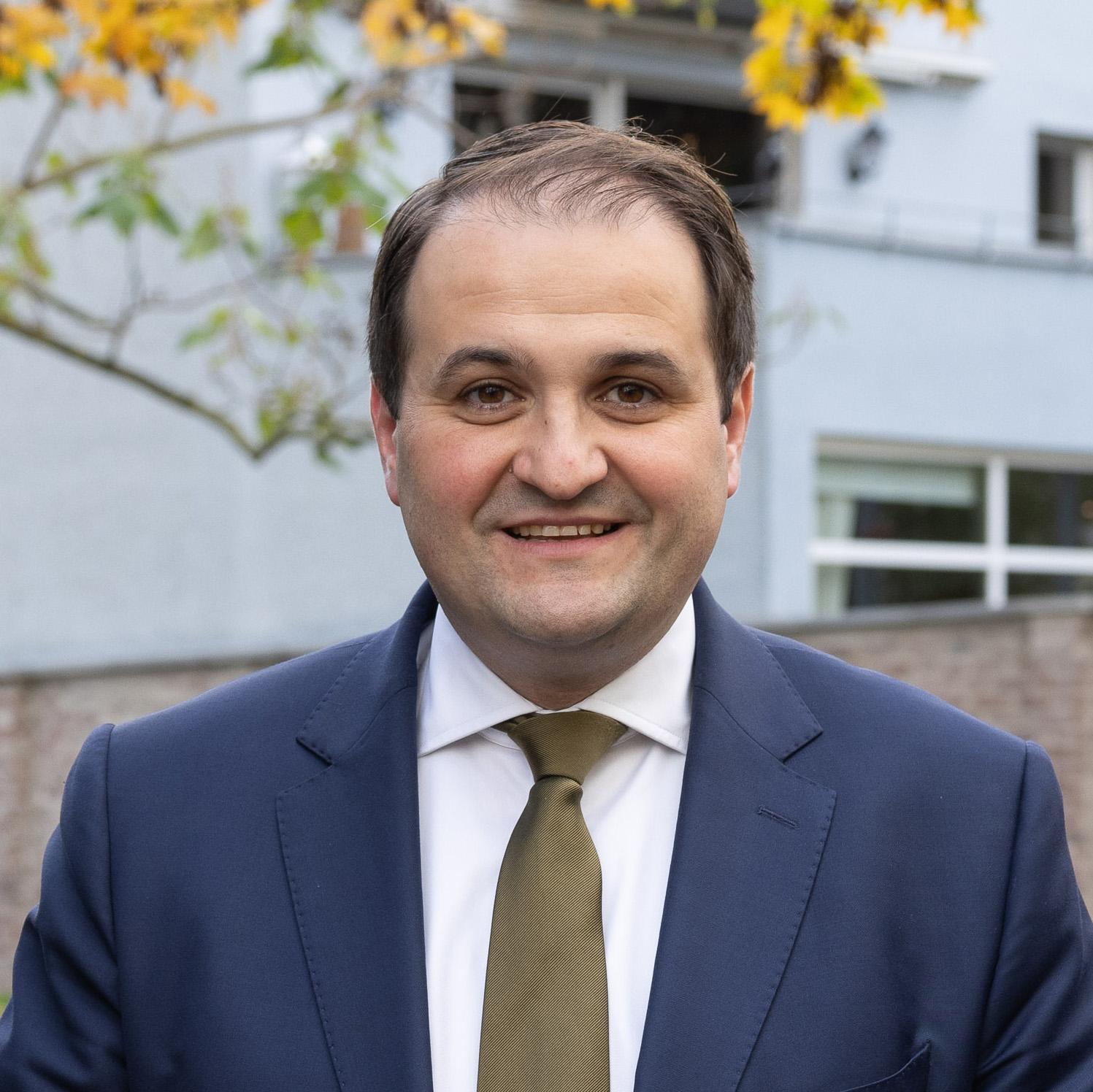
Nathanael Liminski
Minister for Federal and European Affairs, International Affairs and Media of the State of North Rhine-Westphalia
Panelists:
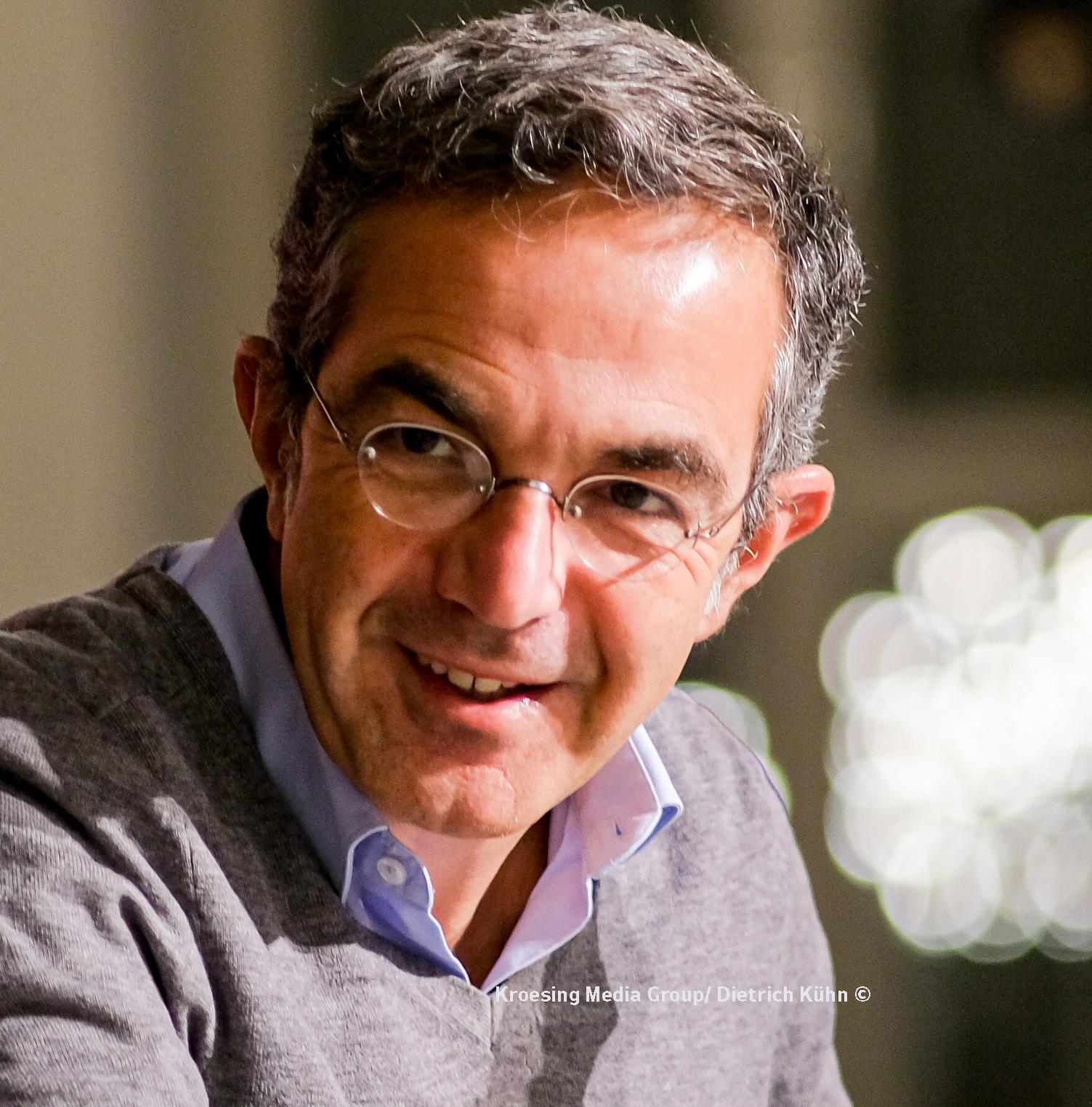
Navid Kermani
Author, Laureate of the Peace Prize of the German Book Trade
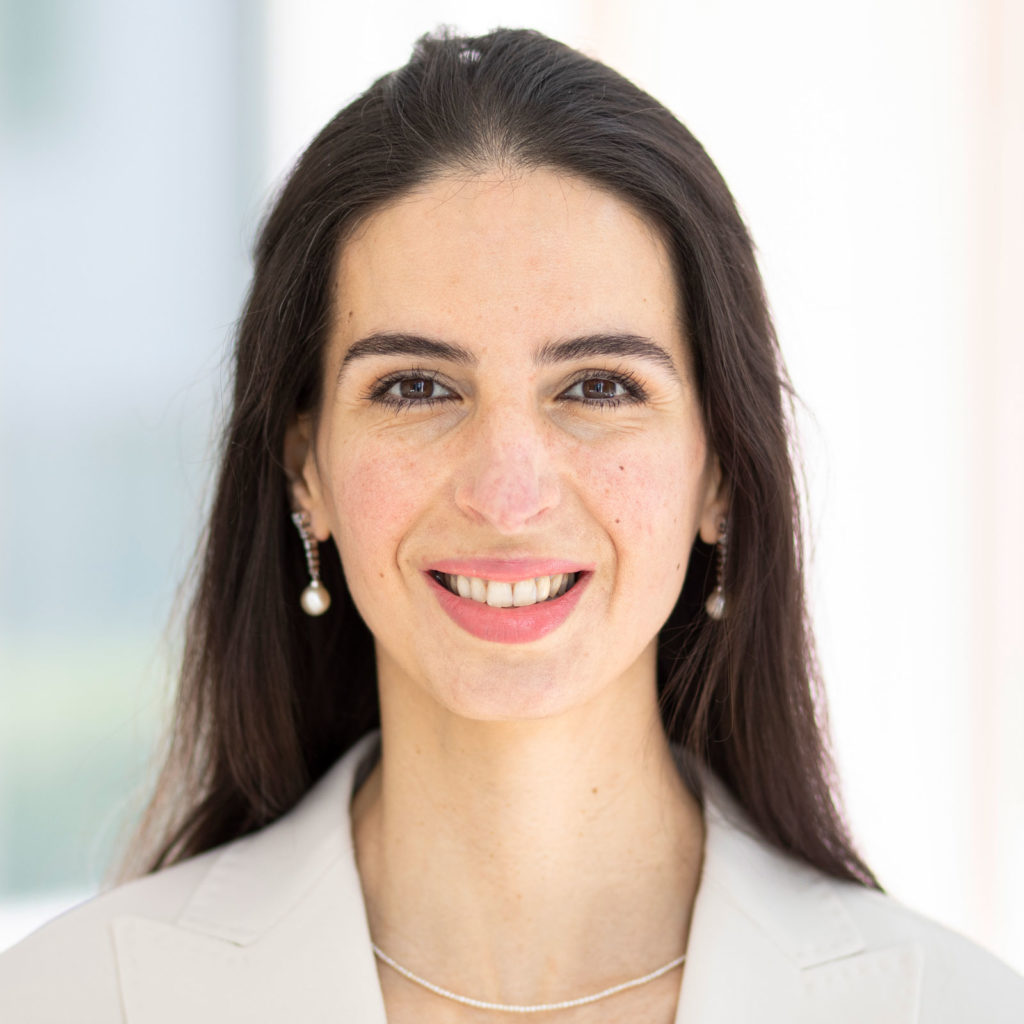
AIA NRW, Katja Velmans
Dr. Mayssoun Zein Al Din
Executive Director AIA NRW
Moderation:
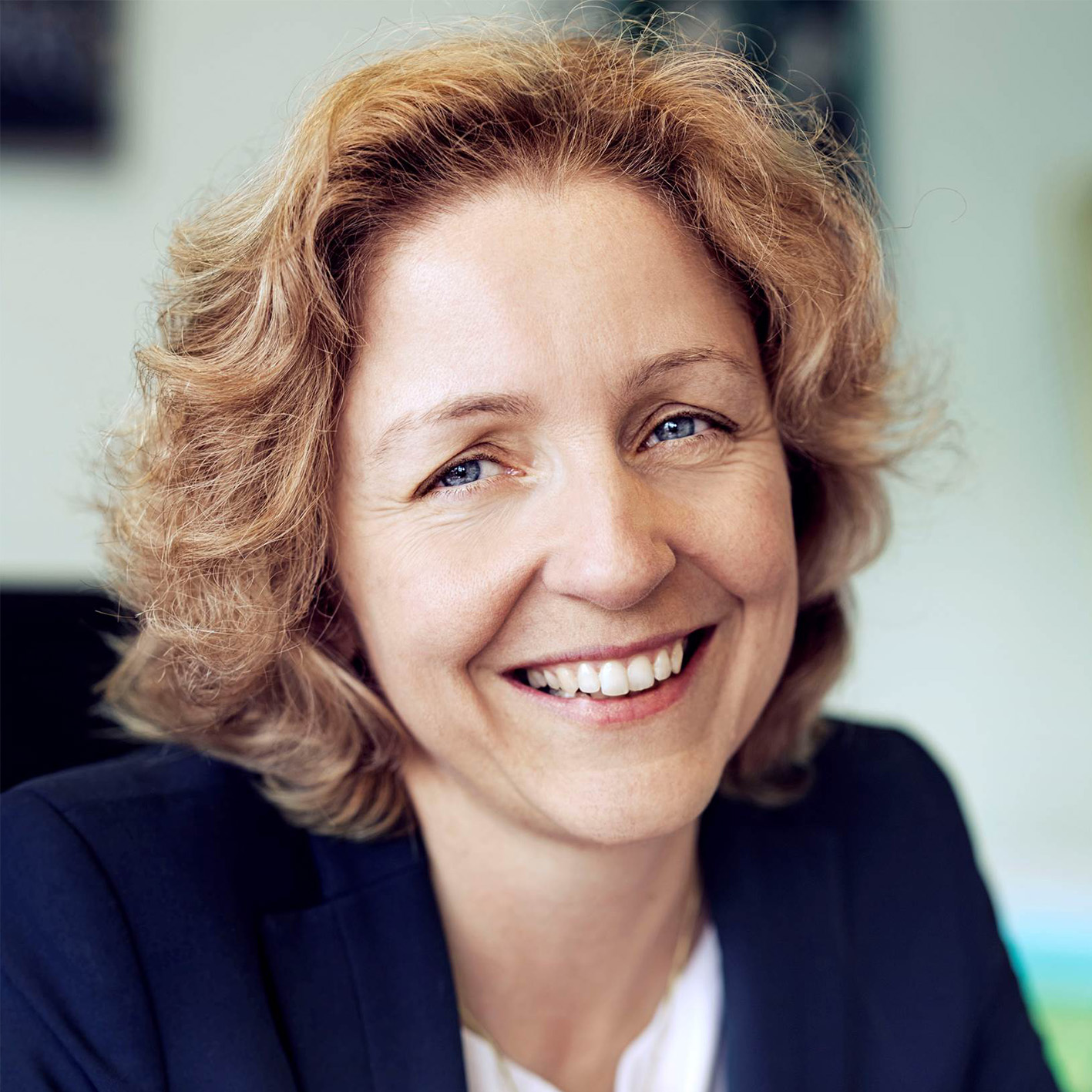
Angelika Nußberger, Josef Fischnaller
Prof. Dr. Dr. h.c. Dr. h.c. Angelika Nußberger M.A.
Director, Academy for European Human Rights Protection University of Cologne
